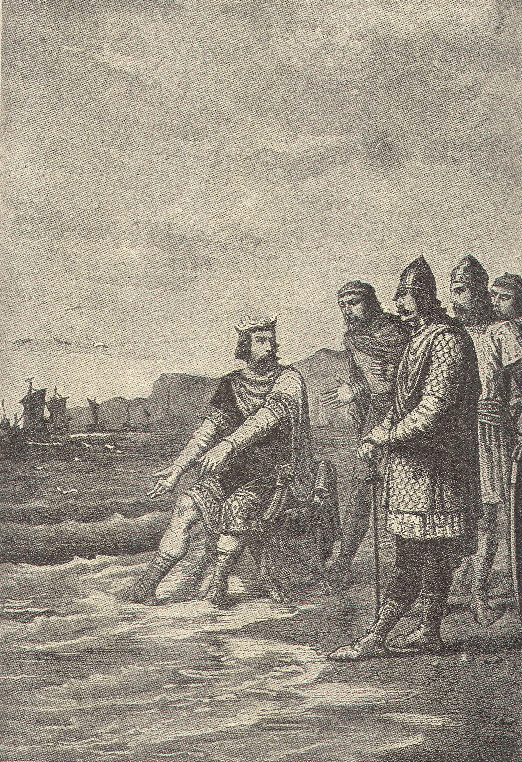Is Tim Walz a Canute?

There is a story from English history about King Canute the Great, who ruled the country between 1016 and 1035. One day, he took his top courtiers and lackeys to the beach. There, he sat on a throne on the sand and commanded the tide to turn back. It didn’t, and Canute got wet.
One interpretation of this tale is that Canute was giddy with the possibilities of royal power and thought the sea would obey him. Another, is that the canny Canute knew it wouldn’t, but wanted to show his sycophantic toadies the limits of his power.
The story is apocryphal at any rate, but I was reminded of it this week when Gov. Tim Walz announced his plans to introduce stricter emissions standards for cars, trucks, and SUVs in Minnesota, aligning our state with California, that beacon of successful public policy.
The Pioneer Press reported
“If you want to drive your F-150 (pickup) to take your ice house out to the lake, continue to do that,” Walz said in a conference call with reporters. “But we’re going to also make sure that there’s ice on that lake in January.”
Tim Walz, remember, is not a Bond villain piloting a network of weather control satellites from a hollowed out volcano. He is governor of the great state of Minnesota. Contrary to what he appears to believe, he does not have the power to control world climate. He has no more power over whether or not there is ice on Minnesota’s lakes than Canute did over England’s tides. Indeed, the same Minnesota state government which spent $100 million on a driver’s licensing system which didn’t produce driver’s licenses is now supposed to successfully control the climate. Suddenly Canute suddenly isn’t the most misguidedly ambitious guy in the room.
The economist Friedrich von Hayek talked about ‘The Pretence of Knowledge‘, what economists Donald J. Boudreaux and Todd J. Zywicki summarized as “the idea that anyone could know enough to engineer society successfully”. But what we see with Canute and Walz is the pretense of power, the idea that anyone has enough power to engineer society – or the climate – successfully. In a recent report, we estimated that if the state of Minnesota enacted a 50% renewable energy mandate with a target date of 2030, it would reduce global temperatures by 0.0006°C – an amount too small to measure, let alone guarantee ice on the state’s lakes.
“Ah, but we have to start somewhere”, I hear you say. Indeed. But that somewhere should be a realistic assessment of what we can actually do, not fantasy.
John Phelan is an economist at the Center of the American Experiment.